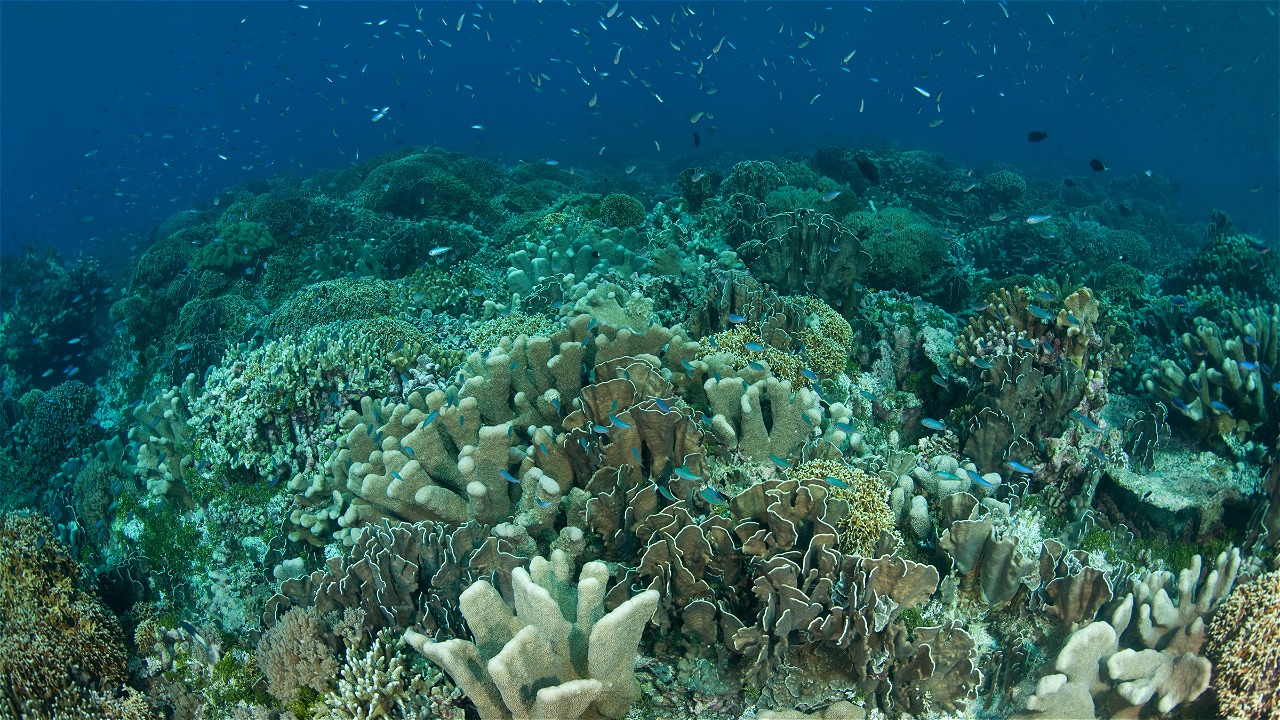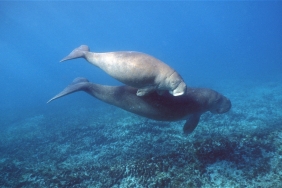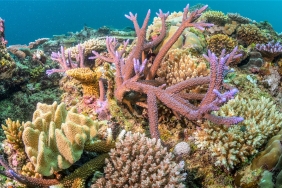SOUTHWEST MALUKU'S FISHERIES POTENTIAL NEEDS TO BE MANAGED SUSTAINABLY
Jakarta - The Southwest Maluku region still has relatively good ecological potential, social aspects of the community, and a fisheries sector that is of high value and very important to be managed sustainably. Marine biodiversity, relatively high reef fish density, dense coral cover, and preserved local wisdom are expected to be able to support the economy in the future. This emerged as the preliminary findings of a rapid ecological, socio-economic and fisheries survey in the outer islands of Southwest Maluku conducted on November 1-15, 2015 by WWF-Indonesia together with the Marine and Fisheries Research and Development Agency, Ministry of Marine Affairs and Fisheries (KKP).
Bambang Sumiono, Head of the Research Group on Marine Fisheries Resources Management and Utilization Policy at the Center for Fisheries Research and Development - Research and Development Agency of KKP, stated, "One of the Action Plans towards Maluku as the National Fish Barn is the optimization of sustainable utilization of marine and fisheries potential. This expedition will become a reference and a strong scientific foundation to accelerate readiness in formulating forms of fisheries resource management and sustainable utilization of marine resources in the waters of Southwest Maluku". In the development of the national economic corridor, the National Fish Barn policy in the Maluku Islands is designated as one of the basic sectors in the Maluku-Papua economic corridor.
"With these important findings, WWF-Indonesia hopes that effective regional and fisheries management in Southwest Maluku can be realized as soon as possible. This district has great potential as one of the drivers in the Maluku-Papua economic corridor through the fisheries and marine tourism sectors," said Estradivari, WWF-Indonesia's Marine Conservation Science Coordinator, who was also the expedition coordinator. Meanwhile, the final findings of the survey are planned to be released in April 2016.
Rapid surveys are an approach to investigate complex situations where time and resources are limited, and it is not possible to conduct in-depth, long-term research. A total of 16 researchers were involved in collecting data on the condition of marine ecology, fisheries and socio-economic conditions of communities in 30 underwater survey sites and 14 target villages, which among others came from KKP, Southwest Maluku Marine and Fisheries Service (DKP); Pattimura University (Unpatti); Bogor Agricultural Institute (IPB); WWF-Indonesia and Wildlife Conservation Society Indonesia Program (WCS-IP).
One of WWF's studies earlier this year on marine protected areas showed that for every dollar invested in marine protected areas, three times as many benefits are realized through employment, coastal protection and fisheries. It was also estimated that increased protection of critical habitats could generate net benefits of between US$490 billion and US$920 billion over the period 2015-2050.
#FINISH#
Note to Editor:
- Southwest Maluku is one of Indonesia's outermost islands with waters directly adjacent to Timor Leste and Northern Australia. This geographical condition makes Southwest Maluku a strategic area and one of the priority areas for conservation and sustainable fisheries management that must be maintained by Indonesia, both related to national sovereignty and natural resource management.
- The rapid ecological, social, and fisheries survey in Southwest Maluku was also carried out based on the Cooperation Agreement between WWF-Indonesia and the Research Center for Fisheries Management and Conservation of Fish Resources (Marine and Fisheries Research and Development Agency of KKP), October 28, 2015, which includes the implementation of the activity itself and follow-up activities in the form of recommendations that can support sustainable fisheries in Indonesia.
- Travel maps and high-resolution photos related to #XPDCMBD can be downloaded via the link http://bit.ly/1kPahyb, and used with copyright © WWF-Indonesia.
- Visit the live page #XPDCMBD at www.wwf.or.id/xpdcmbd
For more information, please contact:
- Estradivari,Marine Conservation ScienceCoordinator, WWF-Indonesia
Email: estradivari@wwf.or.id; Phone: +62 812 9541624
- Noverica Widjojo, SBS Communication & Campaign Coordinator, WWF-Indonesia
Email: nwidjojo@wwf.or.id, Hp: +62 812 19581985





